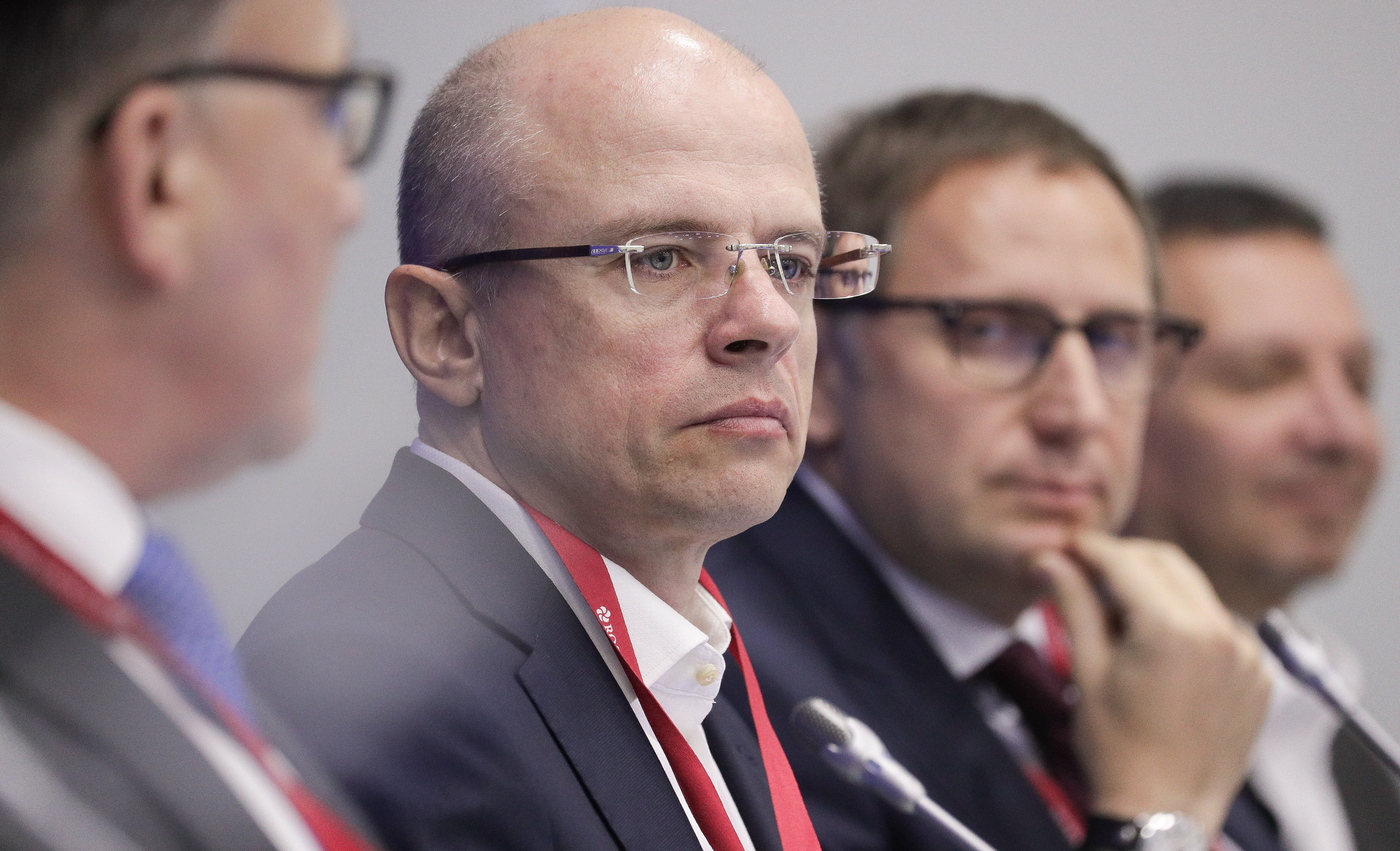A panel session titled “Self-regulation vs state control. How to stimulate the consumption of legal content” was held as part of the St. Petersburg International Economic Forum (SPIEF) on June 7. Its participants discussed the latest status of the fight against media piracy, following the signing of the anti-piracy memorandum in November 2018, new legislative initiatives as well as measures that can further support the legal consumption of content.
The panel’s participants included the head of the Federal Service for Supervision of Communications, Information Technology and Mass Media (Roskomnadzor) Aleksandr Zharov, deputy CEO of Gazprom-Media Holding Alexey Krasnov, CEO of Russia’s Channel One Konstantin Ernst, CFO and COO of Yandex Gregory Abovsky, general manager of CTC Media Vyacheslav Murugov, general manager of Ivi.ru Oleg Tumanov, and the president of the Korea Mobile Internet Business Association (MOIBA) Koh Jean. NTV host Igor Poletaev moderated the discussion.
The head of Roskomnadzor Aleksandr Zharov started the panel discussion. He summarized what has been accomplished in the fight against the illegal distribution of content online in 2018 and spoke about the new technological tools that are helping to combat media piracy.
Alexey Krasnov spoke about Gazprom-Media’s experiences in the fight against piracy, as well as the Holding’s efforts to develop OTT-services. Gazprom-Media produces 22,000 hours of its own premiere content each year, while the total number of video views on the Holding’s online resources exceeds 5 billion. “Thus, the fight against piracy is the protection of our investments,” Alexey Krasnov noted.
The number of blocked links to sites that illegally distribute the Holding's content grew by 120% to 5.26 million* in 2018 (*data from Gazprom-Media Entertainment TV and Group of Companies KIT, excluding NTV). The number of blocked websites - mirror sites and sites that are blocked permanently - increased 5.5 times to 1,707 websites in 2018. More than 46,000 links offering pirated content have been removed from the Yandex and Google search engines over the past year and a half. The Holding is also developing and using its own software to find and delete pirated videos.
Alexey Krasnov noted that despite these accomplishments in the fight against piracy, the Holding still needs protection for the content aired on its special-interest channels. This is particularly urgent in regards to live broadcasts of sports events. Gazprom-Media currently has 12 special-interest sports channels, which aired more than 11,500 hours of sports broadcasts in 2018.
“We need to explain to viewers that sports content is becoming more expensive. If they continue to watch it on pirated resources, then in two to three years there will simply be no more sports content. We cannot extend an endless credit line to this process,” said Alexey Krasnov.
He also noted that Gazprom-Media Holding is shaping the habits of paid media consumption by developing its own video platforms. The TNT-PREMIER service currently has more than 600,000 subscribers and its content has received 134 million views. Similarly, MATCH PREMIER has more than 400,000 subscribers and its average viewing time per day among a male audience aged 14-59 audience is 83 minutes, according to Mediascope. The number of subscribers of the NTV-PLUS online television service increased by 22% during the first quarter of 2019.
